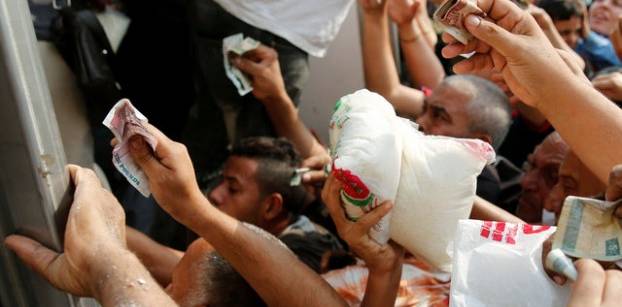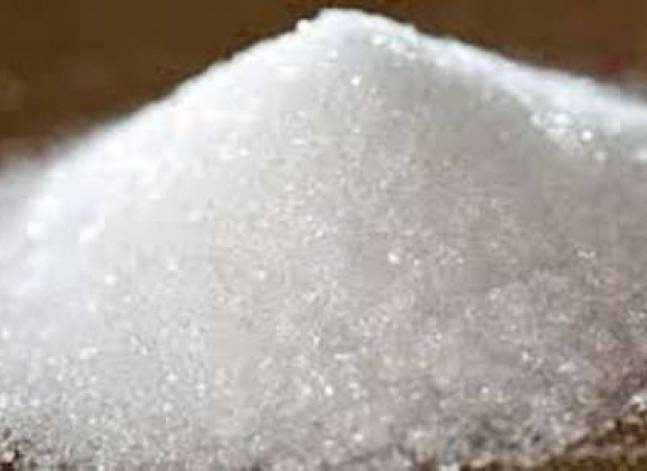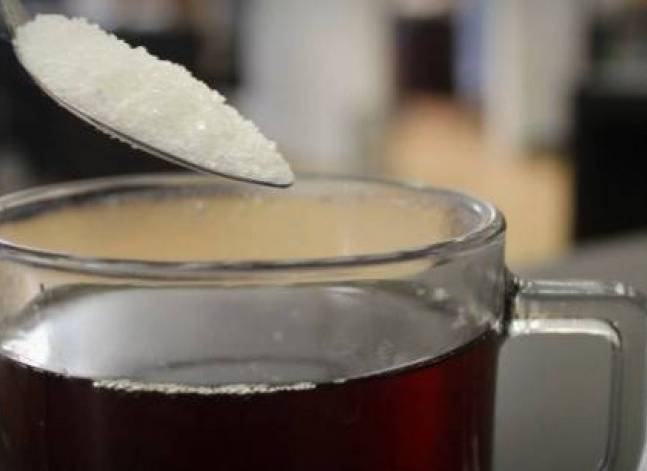Latest NEWS
- Aswat Masriya, the last word
- Roundup of Egypt's press headlines on March 15, 2017
- Roundup of Egypt's press headlines on March 14, 2017
- Former Egyptian President Hosni Mubarak to be released: lawyer
- Roundup of Egypt's press headlines on March 13, 2017
- Egypt's capital set to grow by half a million in 2017
- Egypt's wheat reserves to double with start of harvest -supply min
- Roundup of Egypt's press headlines on March 12, 2017
Egypt's Edita says confiscated sugar released, factory to resume operations
A man carries subsidized sugar after buying it from a government truck, during a sugar shortage in retail stores across the country, in Cairo, Egypt, October 14, 2016. Picture taken October 14, 2016. REUTERS/Amr Abdallah Dalsh
CAIRO (Reuters) - Edita Food Industries, Egypt's maker of Twinkies and one of the country's largest food producers, said on Wednesday sugar seized at one of its plants by government authorities had been released and operations would resume within hours.
The company said on Monday its sweet factory in Beni Suef had been shut for three days after authorities seized its sugar.
"Edita Food Industries ... received today notification from the Prosecutor General’s Office that it had ordered the release of the company’s sugar inventory seized last week at an Edita facility," the company said in a statement on Wednesday.
The government has accused factories and traders of hoarding stocks to push up prices amid a nationwide shortage of the commodity, an allegation they deny.
"We are grateful for the personal attention paid to our issue by a number of senior government officials, who clearly understand the definition of private property and of a free market economy," Edita Chairman Hani Berzi said in the statement.
Egyptian authorities have raided sugar factories and distributors in recent days amid a countrywide shortage of sugar, blaming the crisis on traders and suppliers hoarding and smuggling supplies.
At supermarkets nationwide, sugar has all but vanished, prompting media talk of a crisis and pushing the state to rapidly increase imports despite an acute dollar shortage and soaring global prices of the sweetener.
The company has four factories in Egypt, including its Beni Suef plant which makes hard and soft candy. It said sweet production accounted for only 4 percent of its total revenues.
Analysts said the closure would not have a major impact on Edita's profits but would send a negative signal to foreign investors, which Egypt needs to redress the dollar shortage at the heart of its sugar supply problems.
Egypt consumes around 3 million tonnes of sugar annually but produces only just over 2 million tonnes, with the gap filled by imports. Traders have said high global sugar prices and a rising black market rate for dollars have made it too expensive and risky for many importers to obtain sugar in recent months.
(Reporting by Eric Knecht and Amina Ismail; Editing Lin Noueihed and Mark Potter)














